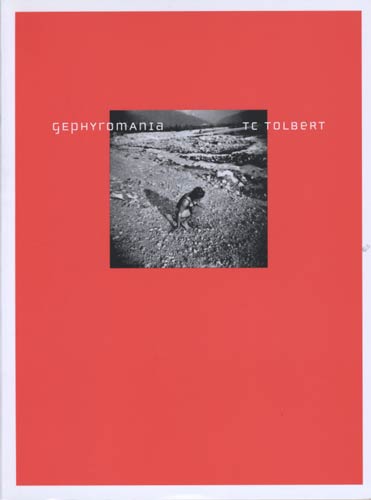Gephyromania
In Gephyromania, which means the love of building bridges, we are given a “subtextual consciousness of queer” per the author, TC Tolbert, who is a genderqueer feminist poet and teacher. S/he is co-editor for The Feminist Wire and a curator for Trickhouse, an online cross-genre arts journal. Tolbert also founded Made for Flight, a youth empowerment program using writing and kite building, commemorating murdered transgender people, to bring awareness about homophobia and transphobia. In Gephyromania, which means the love of building bridges, we are given a “subtextual consciousness of queer” per the author, TC Tolbert, who is a genderqueer feminist poet and teacher. S/he is co-editor for The Feminist Wire and a curator for Trickhouse, an online cross-genre arts journal. Tolbert also founded Made for Flight, a youth empowerment program using writing and kite building, commemorating murdered transgender people, to bring awareness about homophobia and transphobia.
There is always the social and political casing to wrangle through for anyone who is different from the majority. Much has been written on the problems of civil rights, tolerance, and hate speech. Tolbert, however, brings us the interior feel of what it means not to fit into a social organization’s prescribed roles and images. The first page contains these words, giving us the scope of the problem and solution:
decorate almost, queer
miscreant
(bear some boy)
and sing
With large amounts of space, containing only these words, the reader is left to sit with the interior view of someone who is negatively seen as “other.” The next page gives the assessment: “To remove from the frame of reference the referent. / To erase singular. (and plural.) and yet. / The verb never agrees with its heresy.” Those who do not express the dominant culture’s ideal of body/gender types are removed from the criteria of being accepted to belong and to be seen, “The story of cleavage unwritten. / Erased. (perhaps) [ . . . ] but still missed.” Here is the boundary of being on the other side and that “the rejected other” is the one forced to find entry, live covertly or die.
Tolbert chooses to work on finding entry: “You who chose to sidle through the window. / In a body no longer possible still a when.” A “you” that includes the other as both inside/subjective and outside/objective; to “sidle,” or come through on one’s own terms with constructed self-awareness; “through the window,” the opening created by the unseen (looked through) other. Language reduced to a minimalist present points at subjective resistance. Such language provides spaces to see the unseen other not incorporated in the social image of convention and consensus, the space “one as an unincorporated other” must find a way to cross: language from this struggle, the words of the sentence existing as narrative fragments pointing at a lived (subjective) reality outside the social net, a body-mind that must express itself-as-itself in order to find a way to form community.
A line is walked between awareness of gender-in/as-itself versus a gender that is leashed to the conventional imagery of sexuality. The writing feels like speech, as if to listen to someone speak about the images s/he is dealing with in terms of being judged, language/consciousness born of being rejected for otherness. Sexuality is the primary thing that sets one outside, as does an indistinct gender, “That either way I am unable to be conceived. / That the body which is my body is indeterminately.” Many stanzas and phrases, are a challenge to decipher as single words often provide multiple implications, but the struggle, uneasiness, and push to be heard and to be seen come through with a language being constructed to express the gap of what living is like in the conventional social order based on the well-defined binary of male and female roles and images that do not apply to one’s being at an existential level.
“Praise the ability to live in uncertainty and doubt / without any irritable reaching after fact or reason [ . . . ] Goddamned well of loneliness. Make it new.” Tolbert speaks the personal, constructs a language to escape the binary of a distinct she and a distinct he, a conceptually converted language that appends to experience with no accepted social definition, a subjective pointing known to the writer for which we can only receive and know we have been given words with meaning we may not be able to enter. And, here is literary criticism delivered simultaneously with text. The text is the body, the experience that is not within the known parameters of the social language of the binary, what has been organized as that which can have meaning, or “be meaning” because its form contains a content that conforms to the accepted territory of social consensus. The reduced, conceptually fractured use of words leaves the reader feeling in the center of a questioned now. The questioned now a good place to start the world anew . . . for both sides of the other.





